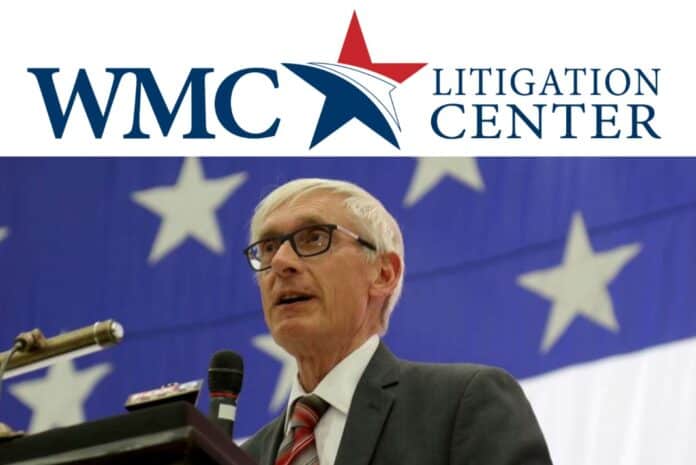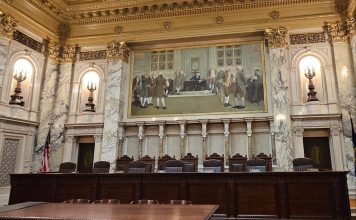There is now a legal challenge to Gov. Tony Evers’ 400-year school funding veto.
The WMC Litigation Center on Monday asked the Wisconsin Supreme Court to take up their challenge to the governor’s summer veto that increased per-pupil funding for the next four centuries.
“At issue is Gov. Evers’ use of the so-called ‘Vanna White’ or ‘pick-a-letter’ veto,” the group said in a statement. “The governor creatively eliminated specific numbers in a portion of the budget bill that was meant to increase the property tax levy limit for school districts in the 2023-24 and 2024-25 fiscal years. By striking individual digits, the levy limit would instead be increased from the years 2023 to 2425 – or four centuries into the future.”
The WMC Litigation Center is an affiliate of Wisconsin Manufactures & Commerce (WMC), the combined state chamber and manufacturers’ association.
Litigation Center Executive Director Scott Rosenow said while Wisconsin’s governor has an incredibly powerful veto pen, there are limits.
“No Wisconsin governor has the authority to strike individual letters or digits to form a new word or number, except when reducing appropriations,” Rosenow said. “This action is not only unconstitutional on its face, but it is undemocratic because this specific partial veto allows school districts to raise property taxes for the next 400 years without voter approval.”
Wisconsin lawmakers and voters approved a constitutional amendment in 1990 that put limits on the governor’s veto power.
Rosenow and the WMC Litigation Center say the governor’s veto goes beyond those limits.
The legal challenge also raises the constitutional issue that all state spending has to originate with, and be approved by, the legislature.
“In no uncertain terms, 402 years is not less than or part of the two-year duration approved by the Legislature – it is far more,” concluded Rosenow. “The governor overstepped his authority with this partial veto, at the expense of taxpayers, and we believe oversight by the Court is necessary.”
The WMC Litigation Center is asking the Wisconsin Supreme Court to take the case as quickly as possible.





![Brandon Basham, Chadrick Fulks: VICTIMS Alice Donovan, Samantha Burns [BIDEN COMMUTATION] brandon basham](https://www.wisconsinrightnow.com/wp-content/uploads/2024/12/brandon-basham-2-356x220.jpg)

![Aquilia Barnette: VICTIMS Robin Williams & Donald Lee Allen [BIDEN COMMUTATION] aquilia barnette](https://www.wisconsinrightnow.com/wp-content/uploads/2024/12/aquilia-barnette-2-356x220.jpg)
![Billie Jerome Allen, Norris Holder: VICTIM Richard Heflin, Security Guard [BIDEN COMMUTATION] billie jerome allen](https://www.wisconsinrightnow.com/wp-content/uploads/2024/12/billie-jerome-allen-3-356x220.jpg)
![Shannon Wayne Agofsky: VICTIMS Dan Short & Luther Plant [BIDEN COMMUTATION] shannon agofsky](https://www.wisconsinrightnow.com/wp-content/uploads/2024/12/shannon-agofsky-2-356x220.jpg)








![Josh Kaul’s Lawfare Betrays His Gubernatorial Ambitions [Up Against the Wall]](https://www.wisconsinrightnow.com/wp-content/uploads/2024/12/MixCollage-17-Dec-2024-11-01-AM-7291-356x220.jpg)












